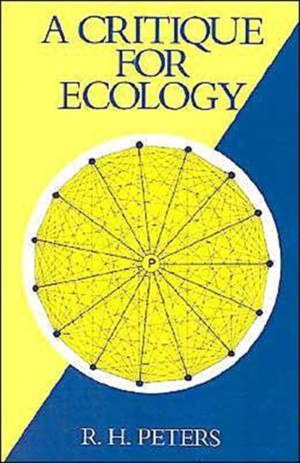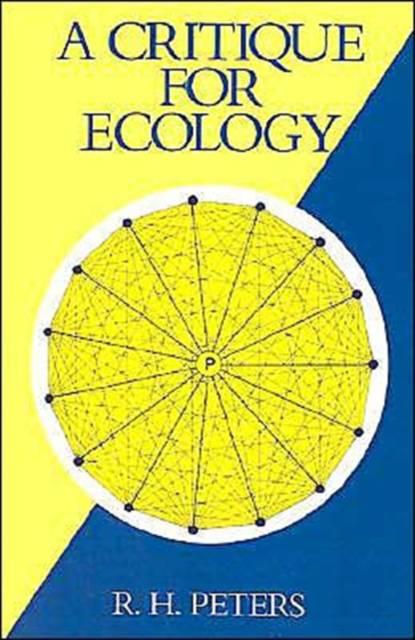
- Afhalen na 1 uur in een winkel met voorraad
- Gratis thuislevering in België vanaf € 30
- Ruim aanbod met 7 miljoen producten
- Afhalen na 1 uur in een winkel met voorraad
- Gratis thuislevering in België vanaf € 30
- Ruim aanbod met 7 miljoen producten
Zoeken
Omschrijving
This book offers a critique of contemporary ecology, which could be applied to any discipline. Author Peters contends that science is a device to offer information about nature through predictions, but that a substantial part of ecology cannot be science because it provides no concrete information and much of the rest of ecology provides data of such poor quality that it can only be called soft science. Although instances of these deficiencies have often been identified, the pervasiveness of the problem has not been fully acknowledged, nor have the similarities among different problem areas been appreciated. If ecology and environmental science are to grow to meet the needs of the present decade and next millennium, scientists in these fields will need much more acute critical abilities than they have yet demonstrated. Professor Peters argues specifically that a return to simple questions of fact, to observations, and to questions of general relevance to science and society can make ecology a useful, practical, and informative science, which is desperately needed to meet the problems of our age. This thought-provoking and perhaps controversial book will be of particular interest to ecologists, but all scientists, from undergraduates to senior academics and professionals, can benefit from reading it.
Specificaties
Betrokkenen
- Auteur(s):
- Uitgeverij:
Inhoud
- Aantal bladzijden:
- 384
- Taal:
- Engels
Eigenschappen
- Productcode (EAN):
- 9780521395885
- Verschijningsdatum:
- 26/07/1991
- Uitvoering:
- Paperback
- Formaat:
- Trade paperback (VS)
- Afmetingen:
- 152 mm x 228 mm
- Gewicht:
- 539 g

Alleen bij Standaard Boekhandel
+ 305 punten op je klantenkaart van Standaard Boekhandel
Beoordelingen
We publiceren alleen reviews die voldoen aan de voorwaarden voor reviews. Bekijk onze voorwaarden voor reviews.











